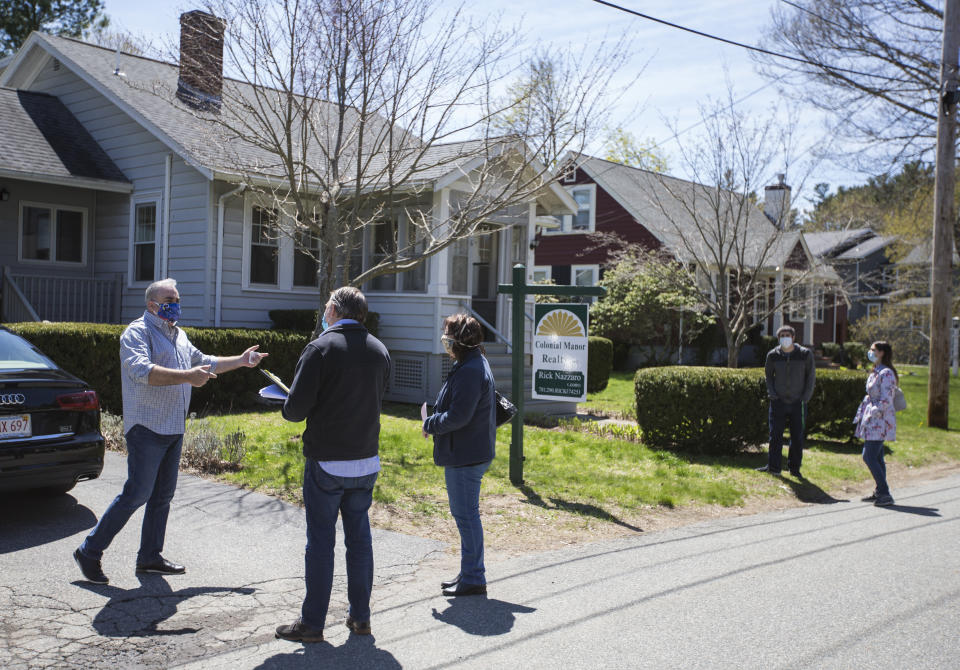Delinquent mortgages spike in April amid pandemic, study shows
The number of delinquent mortgages backed by federal agencies jumped by half a million in April, according to a study by Inside Mortgage Finance, a financial news and statistics company.
Delinquent mortgages backed by Ginnie Mae — which includes FHA and VA loans — surged the most, more than doubling to 818,657 in April from 352,397 loans in March. Overall, 7.02% of the 11.7 million Ginnie mortgages were 30 to 60 days past due. The delinquency numbers may also include those who have applied for forbearance.
The share of delinquent FHA loans grew to 8.57% in April from 4.82% in March. VA loans grew at a slightly slower pace from 2.09% to 3.86% at the end of last month.
“It didn’t come as a surprise as Ginne Mae borrowers have FHA and VA loans, which tend to have lower credit scores, higher loan-to-value ratios, and higher debt-to-income than borrowers who have Freddie Mac and Fannie Mae,” said John Bancroft, a contributing editor at Inside Mortgage Finance who analyzed the data. “Those borrowers are most likely to run into financial problems.”

Mortgages backed by Freddie Mac that were at least 30 days past due increased by 232,977 from the end of March to April. The share of delinquent mortgages increased to 3.04% from 0.87% in March. The delinquency rate for home loans backed by Fannie Mae was 4.11% in April, according to more limited data.
‘Delinquencies turn to foreclosures’
Even higher delinquencies are expected down the road, according to experts.
“Since the figures are only available on a monthly basis, we’ll have to come back and revisit the second week of June,” Bancroft said. “I would expect to see another increase in the 30-day category.”
Jeremy Sopko, cofounder at Nations Lending Corp., believes the government hasn’t done enough to assist struggling homeowners.
“I would not expect this number to drop,” Sopko said. “Millions of Americans are out of work right now, and even with government assistance it can and will be tough to make ends meet for millions of people.”
Recent credit tightening has prevented homeowners from accessing other modes of wealth such as their home equity, Sopko said.
“Exacerbating the situation is that current homeowners may find it difficult right now to either refinance to a lower rate, tap a home equity line, or opt for a cash-out refinance to put cash in their pockets,” he said. “Restrictions are tightening and many lenders simply don't have the bandwidth to accommodate the application volume.”
What can mortgage borrowers do?

If you can’t make your mortgage payments, immediately call your mortgage servicer to request forbearance or other options, Sopko said.
“Most, if not all lenders, have programs in place right now to assist you, and forbearance may be an option as well,” Sopko said.
As a result of the CARES Act, borrowers can request forbearance up to a year if their loan is backed by a federal agency and they are facing a pandemic-related hardship. It’s important for borrowers to fully educate themselves on both new regulations and options their lender provides.
“Delinquencies are probably happening because people assume they can automatically skip [a payment],” said Todd Jones, president of mortgage at Paramount Bank, “and didn’t have to talk to their [servicer] about forbearance,”
Dhara Singh is a reporter at Cashay and Yahoo Money. Follow her on Twitter at @Dsinghx.
Read more:
Lenders slash credit limits, tighten standards as Americans lose jobs in the pandemic
Mortgage refinances hit 11-year high as coronavirus fears send rates tumbling
Read the latest financial and business news from Yahoo Finance and Yahoo Money
Follow Yahoo Finance on Twitter, Facebook, Instagram, Flipboard, SmartNews, LinkedIn, YouTube, and reddit.

 money
money 
